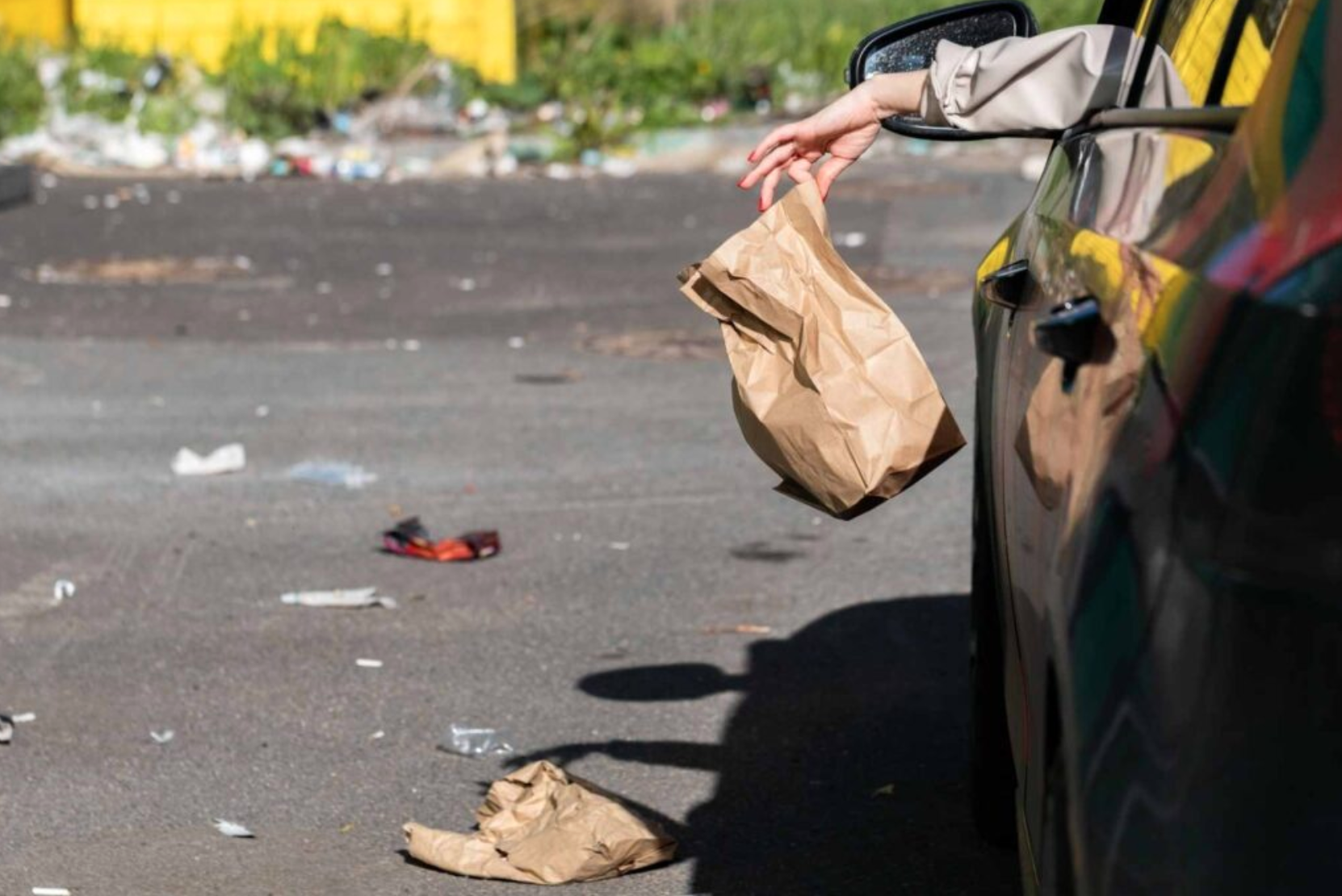
Litter is a serious problem in Nevada. Every year, tons of litter ends up on our roadsides, in our parks, and in our waterways. Litter not only looks bad, it’s also harmful to the environment and can pose a health hazard to humans and animals.
What is Litter?
Whether done internationally or unintentionally, littering is the improper disposal of waste products.
Litter comes in many forms, but there are items that are littered more often than others. Research has found that the most common types of litter include: cigarette butts, food wrappers, plastic bottles, disposable cups, grocery bags, straws, beverage cans, tire and vehicle debris.
Litter’s Negative Impacts
Single-use and plastic wrapping has contributed to the staggering amounts of litter found on our planet. Though it can be difficult to fully understand the devastating effects of tossing a cup out the window, litter has a severely negative impact on the environment. From litter along the road, on the streets, or next to the trash bins, toxic materials and chemicals in the trash can be blown or washed into rivers, forest lands, oceans, lakes, or creeks, and will eventually pollute our land and waterways.
In addition to water and soil pollution, litter can also pollute the air. It’s estimated that over 40% of the world’s litter is burned in the open air, which releases toxic emissions. These emissions can cause respiratory issues, other health problems, and even be a starting base for acid rain.
A staggering 9 billion tons of litter ends up in the ocean every year. Not only is this a horrifying fact when we consider the implications for the environment, it’s a monetary problem as well. Last year, United States taxpayers spent nearly $11 billion cleaning up litter across the U.S., ten times more than the cost of trash disposal.
Why Do People Litter?
To stop littering, it’s important to know why people litter. Less than 20% of litter comes accidentally from unsecured items in trucks or trash receptacles, with the unfortunate fact that the rest of litter is intentionally dumped. The truth is that over 75% of litter found on roadways comes from litter thrown out by motorists and pedestrians.
For those aware and conscious of the environment around them, it might seem drastic that so much litter is intentionally not disposed of properly. So, why do people litter? Often it can be traced back to the following reasons:
- Laziness or carelessness
- Lack of access to trash receptacles
- Lenient law enforcement
- Presence of litter already in the area
Unfortunately, there isn’t much that can be done when people are just plain lazy or careless. There can however be improvements in education, access to trash receptacles, and community cleanups to help reduce the amount of people who choose to litter.
Nevada’s Penalty for Littering
Nevada has laws in place to penalize littering. Nevada law enforcement considers littering the act of depositing any dirt, garbage, rubbish, or dead animal on or within 1,000 feet of a public highway. The penalties for the first offense range from a fine of $1,000 to six months in jail. Additionally, a second or third offense within a two-year period is considered a gross misdemeanor carrying a penalty of a $2,000 fine and/or a year in jail.
Litter Solutions and Prevention
Litter is a problem that isn’t going away anytime soon. With the rise of single-use plastics and plastic packaging, many Americans dispose of more waste now than ever before.
That’s why every bit of effort that you can put towards wasting less and removing litter matters! Here’s some ways you can lessen the impact:
Use your Grappler for picking up trash on walks. If you are out walking and enjoying nature anyways, make it a habit to bring your Grappler with you and remove any trash you find along your route.
Attend community cleanups. Take a proactive approach to stop littering by attending organized cleanups. Working to clean up your community is not only beneficial to the environment but will make your community more appealing and is a great way to meet new people.
Increase the number of public disposal bins. One of the reasons that people litter is due to lack of public garbage bins, or overflowing bins that do not get emptied regularly. Encourage your community to increase the number of available trash receptacles and the frequency that they get cleaned, so that your community can help deter littering.
Don’t forget – every small act helps! By being mindful of what we buy and throw away, and making a habit of picking up trash when we see it, we can all work together to make a positive difference in our world.




